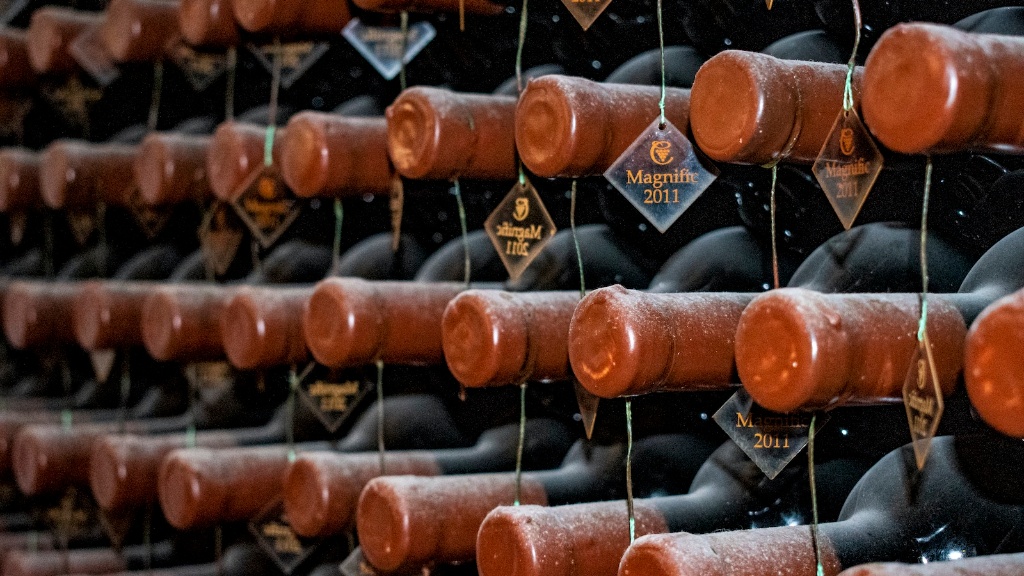Tuscan Olive Oil Tasting
Tuscan Olive Oil Tasting: An Authentic Culinary Experience For centuries, the regions of Italy have been known for their flavorful cuisine and delectable kitchen staples such as pasta, wine, cheese, and, of course, olive oil. But

Tuscan Olive Oil Tasting: An Authentic Culinary Experience
For centuries, the regions of Italy have been known for their flavorful cuisine and delectable kitchen staples such as pasta, wine, cheese, and, of course, olive oil. But what makes Tuscan olive oil, produced in the heart of central Italy, so highly regarded and unique? This prized Italian oil is beloved by chefs and foodies around the world, and for good reason.
Produced from handpicked olives grown in sun-drenched hillsides in Tuscany, this extra virgin olive oil is highly sought after for its fruity aroma, grassy flavor, and bright-green hue. While Tuscan olive oil may be a bit pricier than other oils, it is worth every penny for its unmatched taste and quality. Additionally, Tuscan olive oil is highly nutritious, packed with vitamins and essential fatty acids that contribute to its many health benefits.
The process of making Tuscan olive oil is a carefully crafted art that took centuries to perfect. The olives are handpicked and cold-pressed within hours to maintain the utmost freshness and quality. The resulting oil is then stored in stainless steel containers to preserve its flavor and aroma until it is ready to be consumed.
But how can one discern which Tuscan olive oil is truly the best? This is where olive oil tasting comes in. Olive oil enthusiasts from around the world congregate in Tuscany to participate in these tastings and discover the unique flavors and aromas that characterize this exquisite oil.
During a Tuscan olive oil tasting, participants are given small cups of oil to taste and evaluate. Flavor notes may include attributes such as a slight bitterness, a peppery aftertaste, or a nutty flavor. Tasters will often describe the texture of the oil on their palate, noting its viscosity and mouthfeel. The aroma of the oil is also an important factor, with scents ranging from fresh grass to tropical fruit.
The sensory analysis of Tuscan olive oil is essential to understanding its true quality and flavor profile. Tasters will often use a specialized tasting glass called a blue tasting glass to evaluate the oil\’s hue and clarity, as well as its aroma and flavor. The goal is to determine the oil\’s balance, complexity, and harmony to distinguish the top-quality extra virgin olive oils from lower-quality oils.
The Benefits of Tuscan Olive Oil
Tuscan olive oil is not only delicious but also highly nutritious, making it the perfect kitchen staple for health-conscious consumers. For starters, the oil is rich in antioxidants, which can help reduce inflammation and lower the risk of chronic diseases such as heart disease and cancer. Additionally, Tuscan olive oil is an excellent source of monounsaturated fats, a healthy type of fat that can help lower cholesterol levels and reduce the risk of heart disease.
Tuscan olive oil also has antibacterial properties, which can help fight off harmful pathogens and prevent infection. When used topically, the oil has been shown to improve skin health, reduce inflammation, and even promote wound healing.
Pairing Tuscan Olive Oil with Food
Tuscan olive oil is incredibly versatile and can enhance the flavor of a wide range of dishes. Its light, fruity flavor pairs well with fish, chicken, and vegetables. For a classic Italian dish, try drizzling Tuscan olive oil over a bowl of pasta or using it as a dip for fresh bread.
When choosing which Tuscan olive oil to pair with your dishes, consider the oil\’s flavor notes and intensity. A more robust oil with a peppery aftertaste is perfect for hearty stews or meat dishes, while a lighter, fruitier oil is best for salads, grilled vegetables, and seafood.
The Future of Tuscan Olive Oil
Despite its centuries-old tradition, Tuscan olive oil is facing new challenges in the modern era. Climate change is causing unpredictable weather patterns, such as earlier harvests and lower yields, which can impact the quality and consistency of the olive oil. Additionally, competition from other olive oil-producing countries is increasing, putting pressure on Tuscan olive oil producers to maintain their quality and reputation.
However, Tuscan olive oil producers are meeting these challenges head-on with innovative farming techniques, sustainable practices, and investment in the latest technology. By focusing on quality over quantity and staying true to their centuries-old traditions, Tuscan olive oil producers can ensure that this authentic culinary treasure remains a beloved staple in kitchens around the world for generations to come.
Conclusion
Tuscan olive oil is more than just a kitchen staple; it is a time-honored culinary tradition that has been perfected over centuries. Its unique flavor profile, health benefits, and versatility make it a must-have in any kitchen. By attending a Tuscan olive oil tasting, you can gain a deeper appreciation for this exquisite oil and discover the flavors and aromas that characterize the top-quality extra virgin olive oils. So why not indulge in this authentic culinary experience and taste the best Tuscan olive oils today?

